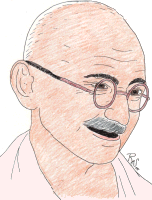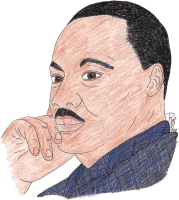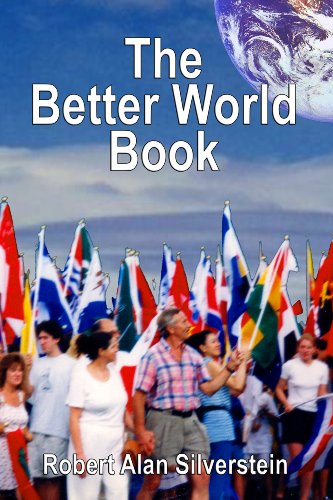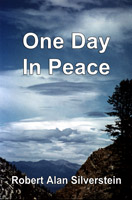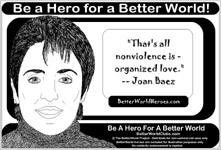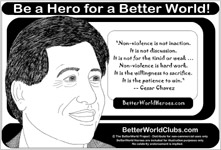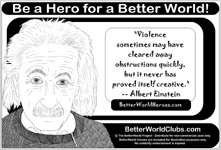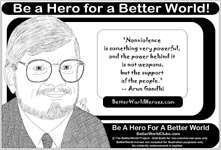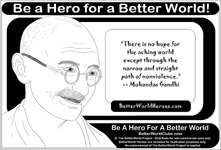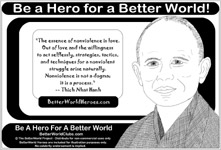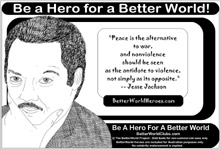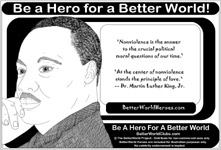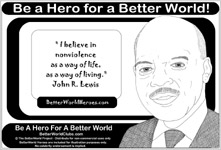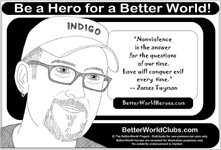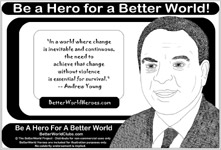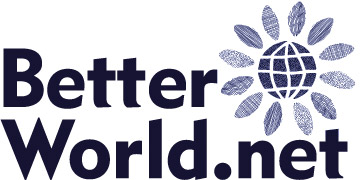Nonviolence
is both a philosophy and a strategy that is based on striving to attain social
or political change without the use of violence. It does not advocate passively
accepting an unjust situation. Instead, nonviolence presents techniques to bring
about change without the use of force. Civil disobedience and nonviolent resistance
are two powerful tools of those who practice nonviolence. Nonviolent movements
have used many specific techniques such as protests, pickets, petitions, vigils,
hunger strikes, sit-ins, tax and draft refusal, blockades and many other methods.
Mahatma
Gandhi and Martin Luther King, Jr. are two of the most inspiring leaders who utilized
nonviolent methods to successfully lead movements for change. In 1997, to commemorate
the 50th and 30th memorial anniversaries of these great leaders, A Season for
Nonviolence was organized from January 30 to April 4. Since then, each year this
global grassroots campaign has continued to commemorate their legacies and raise
awareness about the healing and transforming power of nonviolence. The Season
For Nonviolence has become an important educational and media opportunity to bring
communities together, empowering them to envision and help create a nonviolent
world, one heart and one day at a time.
Throughout
the 64-day campaign, events and activities for peace and nonviolence take place
all around the world, highlighting existing peacebuilding initiatives, and inspiring
new year-round activities for a more peaceful, nonviolent, just and sustainable
world.

